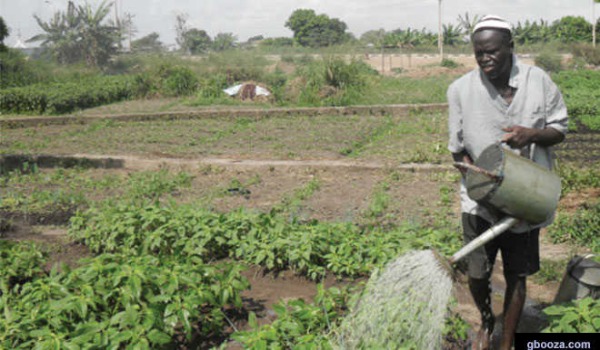Food Security: FG to flag off dry season farming, slash prices of farm inputs by 50%; Nigerians spend N61.08tn on food _ NBS
The Federal Government, as part of measures to address the food shortage in the country, is set to flag off the 2023/2024 dry season farming on Saturday, 25 November 2023.
According to a statement issued by Kingsley Osadolor, technical adviser on strategy and communications to the Minister of Agriculture and food security on Thursday, the government announced a 50 percent drop in the price of agricultural inputs, as it plans to distribute a range of agricultural inputs, including seeds, fertilizer, herbicides and pesticides to farmers.
Osadolor noted that the 2023/2024 dry season farming is expected to take place in all the 36 states of the federation and the FCT, adding that one critical requirement, among others, is the availability of irrigable land where the dry season farming will occur.
“The 2023/2024 dry season farming will be boosted by an African Development Bank facility and implemented under the National Agricultural Growth Scheme and Agro-Pocket (NAGS-AP) project.
“The implementation is ICT-driven with earlier steps taken to geo-locate farmlands, enumerate, register, and cluster no fewer than 250,000 farmers,” he said.
He further disclosed that selected crops for the 2023/24 season include: wheat, rice, maize, sorghum, soybeans, and cassava.
“Wheat farmers have been guaranteed off-take of their produce by the Flour Millers Association of Nigeria.”
The National Bureau of Statistics has revealed that Nigerians have spent N61.08tn on food and other household items and services in the first six months of 2023.
The 2.85 per cent is an increase from the N59.39tn that was spent in the corresponding period of 2022 at the current purchasers’ value.
According to the NBS, it was disclosed that in its ‘Nigerian Gross Domestic Product Report (Expenditure and Income Approach): Q1, Q2, household consumption continues to account for the largest share of the country’s Gross Domestic Product.
It said, “Household Consumption Expenditure, in Q1 and Q2 of 2023 grew by -24.95 per cent and 3.30 per cent in real terms, year-on-year. The growth rates in Q1 and Q2 of 2023 were lower than the rates recorded in Q1 of 2022 and higher than Q2 of 2022.”
The statistics body explained that Household consumption expenditure consists of expenditure, including imputed expenditure, incurred by resident households on individual consumption goods and services.
It further stated that “Household Consumption accounted for the largest share of real Gross Domestic Product at market prices, representing 57.18 per cent and 64.05 per cent in Q1 and Q2 of 2023 respectively, compared to 78.02 per cent and 63.65 per cent in the corresponding quarters of 2022.”
Nigeria’s GDP grew by 2.31 per cent on a year-on-year basis because of cash scarcity in the economy, in the first quarter of 2023. In Q2, GDP growth increased slightly to 2.51 per cent.




